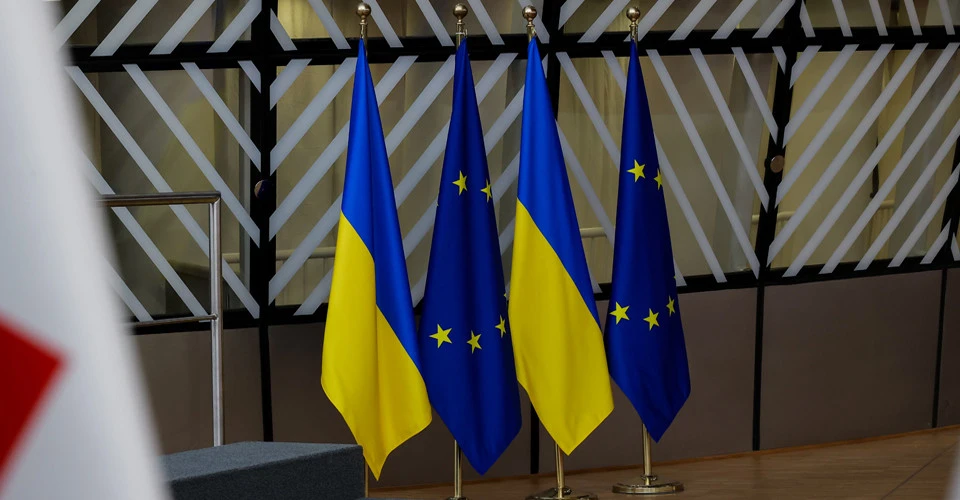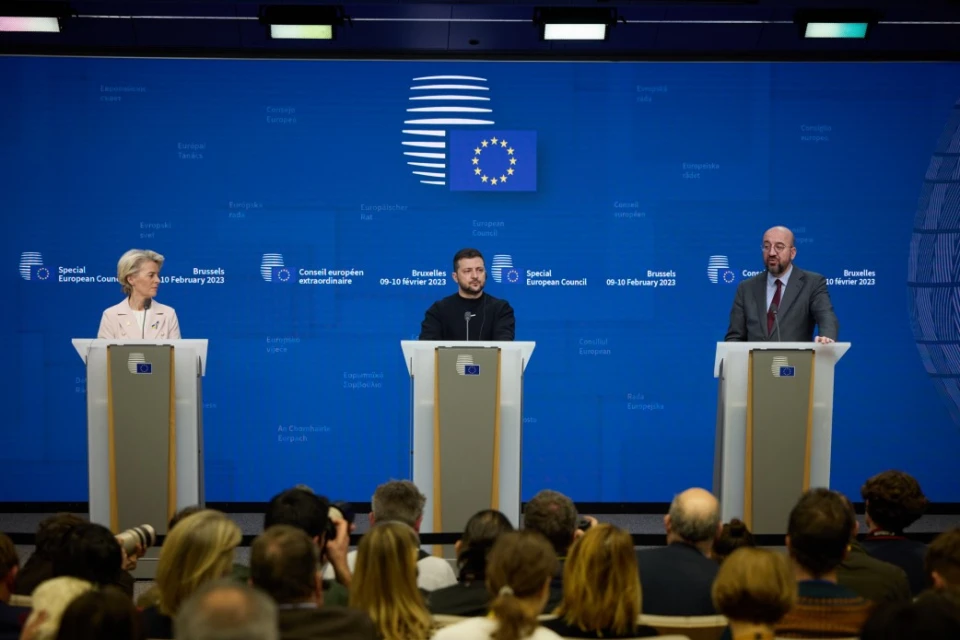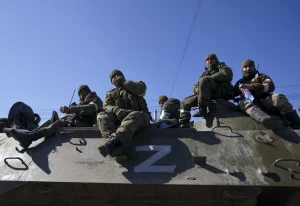
Ukraine's EU membership journey: milestones and next steps
Ukraine has long aspired to formally integrate into the European community, making this a crucial part of its foreign policy. Since gaining independence in 1991, the country has actively sought ways to strengthen its ties with the European Union
Espreso provides a detailed account of Ukraine's current achievements on the path to European integration.
June 2022: candidate country status

In June 2022, the European Council made a significant decision, granting Ukraine candidate status for EU membership. This decision marked the culmination of years of effort by Ukraine to align itself with the standards of the European Union. Candidate status opens new opportunities for deeper integration and the implementation of reforms necessary for membership.
Charles Michel, President of the European Council, commented on this milestone:
“This is a pivotal moment for all of Europe. Today, Ukraine receives candidate status, and this step strengthens European unity. We will support Ukraine on its path to Europe, and together we will build a better future.”
Key achievements of Ukraine as of 2024:
- Protection of national minority rights: In December 2023, Ukraine amended its legislation on national minorities, which was positively assessed by the European Commission. Although the Venice Commission has not yet updated its recommendations, the EC considers the necessary measures to have been implemented.
- Judicial reform: Ukraine has continued implementing reforms aimed at enhancing integrity and merit in the judiciary, strengthening the rule of law.
- Anti-corruption efforts: The institutional framework for combating corruption has been reinforced, with progress in investigating high-level corruption cases. The European Commission recommends maintaining momentum in these efforts.
- Ratification of the Rome Statute: Ukraine ratified the Rome Statute and is working on aligning national legislation with international standards.
European leaders, including Ursula von der Leyen, President of the European Commission, emphasized the importance of supporting Ukraine in implementing the necessary reforms.
"Today, Ukraine has taken a massive step on the path to Europe. The European Commission is proud to support Ukraine in its aspiration to become part of the European family," stated von der Leyen.
Current state of negotiations
Negotiations regarding Ukraine’s EU accession are ongoing. The support of the European Union and international partners remains a vital part of this process. According to Marta Kos, European Commissioner for Enlargement, Ukraine has already made significant progress in implementing reforms, even amid war. However, much work remains to meet all requirements, particularly in the areas of justice, anti-corruption, and economic reforms.
President Volodymyr Zelenskyy has repeatedly emphasized the importance of this stage: "Our key integration goal this year is to achieve a decision on starting membership negotiations. And today, during meetings and talks, I once again heard that this is entirely possible."
Negotiations for Ukraine’s EU membership consist of several stages, including the opening of negotiation clusters, reflecting the country’s readiness to adapt to European standards.
Ukraine, alongside Polish and Danish presidencies of the EU Council, has drafted a plan to open negotiation chapters for EU membership in the first and second halves of 2025. This was announced by Deputy Prime Minister for European and Euro-Atlantic Integration, Minister of Justice Olha Stefanishyna.
She added that Ukraine, together with the Polish side and the new European Commissioner for Enlargement Marta Kos, also planned how to open the first 15 negotiation chapters related to the rule of law in the first half of 2025. At the same time, she noted that the negotiation process will not be easy since, apart from Ukraine’s efforts, agreements must also be reached with the 27 EU member states regarding the opening of each cluster. However, according to Stefanishyna, compared to previous periods, relations with the EU "are strong enough, and there is an understanding that the decision on Ukraine's EU membership has already been made, and we are moving as dynamically as possible."
What are negotiation clusters?
Negotiation clusters are thematic groups that encompass various aspects of legislative and political reforms necessary for joining the EU. Each cluster contains a set of requirements related to a specific area, such as justice, the economy, the environment, energy, and so on. The EU considers these clusters as separate blocks for conducting negotiations, allowing for better organization of the accession process by focusing on key issues where the candidate country must achieve specific results.
Currently, several such clusters have been opened, outlining strategic directions for reforms. The process involves both technical and political assessments of progress at each stage.
Key negotiation clusters
In general, EU accession negotiations are based on 35 "negotiation chapters," divided into several clusters. Each cluster has its specificity, and Ukraine must make significant progress in each area to open negotiations on specific chapters. Here are some of the key clusters that have been opened for Ukraine:
Cluster 1: Functioning of institutions and rule of law
This cluster includes critical aspects such as strengthening democratic institutions, ensuring the independence of the judiciary, and combating corruption. Ukraine must continue its efforts in reforms related to law enforcement, judicial system reform, and anti-corruption measures.
Cluster 2: Economic criteria and internal market
This cluster focuses on aligning Ukraine's economic system with European standards, particularly regarding the internal market, competition, agriculture, and other areas of economic policy.
Cluster 3: External relations and foreign policy
This cluster emphasizes deepening Ukraine's relations with the EU in international policy and fulfilling its foreign policy obligations, particularly in security and interactions with other states.
Cluster 4: Energy, climate, and environment
Ukraine needs to comply with EU environmental standards, including implementing regulations in energy and environmental sectors. This involves reforming energy policy to ensure sustainable development and cooperation with the EU in the energy sector.
Cluster 5: Social policy, healthcare, and education
This cluster includes adapting Ukrainian legislation to European norms in healthcare, education, labor relations, and developing social policies.
Cluster 6: Security and law enforcement
This cluster encompasses reforming the national security and defense system and ensuring law enforcement, which is especially critical for Ukraine amid the ongoing military conflict.
How does It work?
Each negotiation cluster consists of specific requirements that Ukraine must meet to gain access to European funds, carry out particular reforms, and move closer to European standards. The EU provides Ukraine with specific recommendations, which the Ukrainian government must implement. Upon fulfilling the conditions of each cluster, the European Union conducts an evaluation and decides on opening the next stage of negotiations.
This process is phased and gradual, requiring significant political will and capacity for reforms from Ukraine. The EU typically sets clear criteria for each cluster, and progress is assessed based on their fulfillment.
European Commission’s assessment of Ukraine’s progress

In October 2024, the European Commission published a report as part of the EU Enlargement Package, assessing Ukraine's progress on its path to EU membership. The document highlights Ukraine's commitment to fundamental reforms and achieving systemic transformations despite the ongoing war with Russia.
Key aspects and remarks during Ukraine's candidacy period:
- Fundamental reforms: The European Commission acknowledges Ukraine’s efforts to implement necessary reforms and meet criteria in most negotiation chapters. It emphasizes the importance of linking reforms to the negotiation process and the country's recovery.
- Rights of national minorities: The report positively assesses legislative changes regarding the rights of national minorities, adopted in December 2023. While the legislation was updated per EU recommendations, its implementation remains incomplete. The Commission recommends further work on implementing the updated legislation in close cooperation with representatives of national minorities.
- Anti-corruption efforts: The European Commission notes the strengthening of anti-corruption institutions in Ukraine but emphasizes the need to continue efforts in investigating corruption cases, particularly involving high-ranking officials. Despite the creation of an anti-corruption infrastructure , cases against high-level officials progress slowly. Moreover, investigations and punishments for high-level corruption cases remain insufficient, and there are concerns about the independence of anti-corruption bodies.
- Judicial reform: Civil society organizations and international partners highlight the slow pace of implementing integrity and merit-based criteria for judges. The process of cleansing the judiciary of unethical judges remains incomplete.
- Public administration: Administrative reforms are being implemented unevenly. The civil service requires optimization and increased transparency in governance.
- Economic progress: The report notes that Ukraine's economic growth in 2023 exceeded expectations, and the country is transitioning from an early preparation stage to achieving a certain level of readiness to establish a functioning market economy.
- Legislation on oligarchs: The "Law on Oligarchs" has been adopted, but its implementation remains challenging due to political pressure and potential risks of manipulation. Additional mechanisms are needed to limit the influence of oligarchs on politics and the economy.
- Energy sector reform: The transition to transparent and market-based energy management mechanisms has been slow. Corruption risks in state-owned energy enterprises remain high.
- News












































